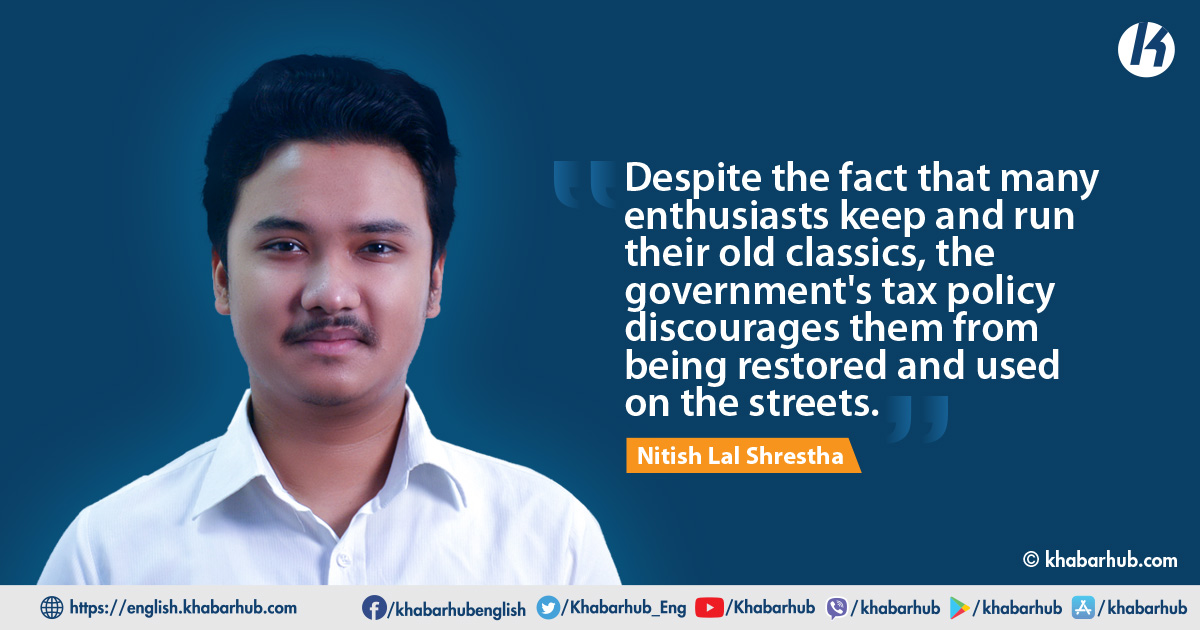KATHMANDU: Old classic automobiles may not appeal to everyone, but for classic vintage automotive enthusiasts, they are a vital part of their hearts and increasingly a part of their lifestyle.
There are people all throughout the world that are interested in preserving, restoring, and collecting vintage automobiles. Nepal is no exception.
There are a lot of old car enthusiasts in Nepal as well. On a global scale, the term “classic” refers to any vehicle that is more than two decades old.
Even now, we see older Toyota Land Cruisers, Mitsubishi Pajero, Toyota Corollas, Mercedes, and other rare oldies like Daihatsu Rocky in excellent shape on Nepalese roads.
While the majority of people believe that these vehicles must be replaced with new ones, old automobile enthusiasts believe otherwise.
The essence of their argument is that, when well maintained, older automobiles can outperform newer models, hence well-kept old classics must be valued.
Despite the fact that many enthusiasts keep and run their old classics, the government’s tax policy discourages them from being restored and used on the streets.
Over 15-year-old private, government, and public vehicles will be subject to an additional transportation tax. The levy, which will rise each year, is part of the government’s effort to combat the Valley’s rising air pollution.
It’s a fair interpretation because no one who owns a vintage or classic car uses it on a regular basis. Because these cars are mostly purchased and maintained as a hobby or for sentimental value, they are nearly typically utilized rarely. This is therefore taken as a welcome move widely by the Indians.
As a result of this policy, owners of classic cars face a substantial financial burden in the form of a yearly tax.
Let’s look at a Toyota Corolla from the year 1990. This car’s annual tax rate is Rs. 27,000 as of August 2021. The model tax for this car, based on the year it was manufactured, is Rs. 22,950. As a result, the owner should pay roughly Rs. 50,000 each year as a road tax. Every year, the rate here rises.
On the other hand, the government is planning to prohibit automobiles older than 20 years from operating on Valley roads. If this is put into effect, it will be the end of the road for admirers of old classics.
True, aging petro/diesel engines contribute to air pollution, but this is just half of the story. Air pollution is exacerbated by aging automobiles with poor engine conditions.
Those who have well-kept engines that are serviced and maintained on a regular basis are not entirely to blame. Hence, the policy must be changed, as limiting all 20-year-old automobiles based on a faulty premise is not a smart idea.
Classic and vintage automobiles are not handled the same way in other countries as they are in Nepal since they have their own set of rules and restrictions.
Cars older than 40 years are classified as vintage in the United Kingdom. All of these vehicles are exempt from paying annual road tax and vehicle excise fees, as well as the annual UK safety test.
Even India has introduced a new set of policies for classic and vintage automobiles. Rather than imposing harsh dos and don’ts on owners of vintage cars and two-wheelers, the policy aims to protect their freedom and passion.
If you own a vehicle that is 50 years old from its first date of registration, it is classified as a vintage vehicle, as per the new policy.
Owners of vintage automobiles will be asked to present the vehicle’s valid insurance policy, a bill of entry if the vehicle is imported, and the old registration certificate if the vehicle has already been registered in India, according to the notice.
Although formulating these policies may not be a top priority for the government at the present, the Ministry of Transportation should look into it because raising taxes every year would not be the sole solution.
This policy, however, aims to make it prohibited to utilize such vehicles for commercial reasons or on a regular basis, but the owners are free to utilize their vintage cars in whatever way they see fit, such as an exhibition or a casual ride.
It’s a fair interpretation because no one who owns a vintage or classic car uses it on a regular basis. Because these cars are mostly purchased and maintained as a hobby or for sentimental value, they are nearly typically utilized rarely. This is therefore taken as a welcome move widely by the Indians.
Returning to Nepal, we have no policy regarding classic and vintage autos; in fact, we lag much behind India in terms of these policies.
Instead of simply increasing the tax, the government should explore new laws for vintage and class automobiles, as India has done.
The government can simply mandate a minimum engine test for these vehicles, which will assess their condition and emission level.
Those who pass these tests should be allowed to drive on public roads. Similarly, the government can make electric conversions of these petrol/diesel operated cars an option. Although this will reduce the value of vintage cars, it will offer them a new lease on life rather than limiting their use.
Although formulating these policies may not be a top priority for the government at the present, the Ministry of Transportation should look into it because raising taxes every year would not be the sole solution.
In addition, if vintage classic enthusiasts begin advocating for changes in policies and regulations, it will be a brilliant start in showing the direction to the relevant authorities and guiding them on what may be done better.









Comment